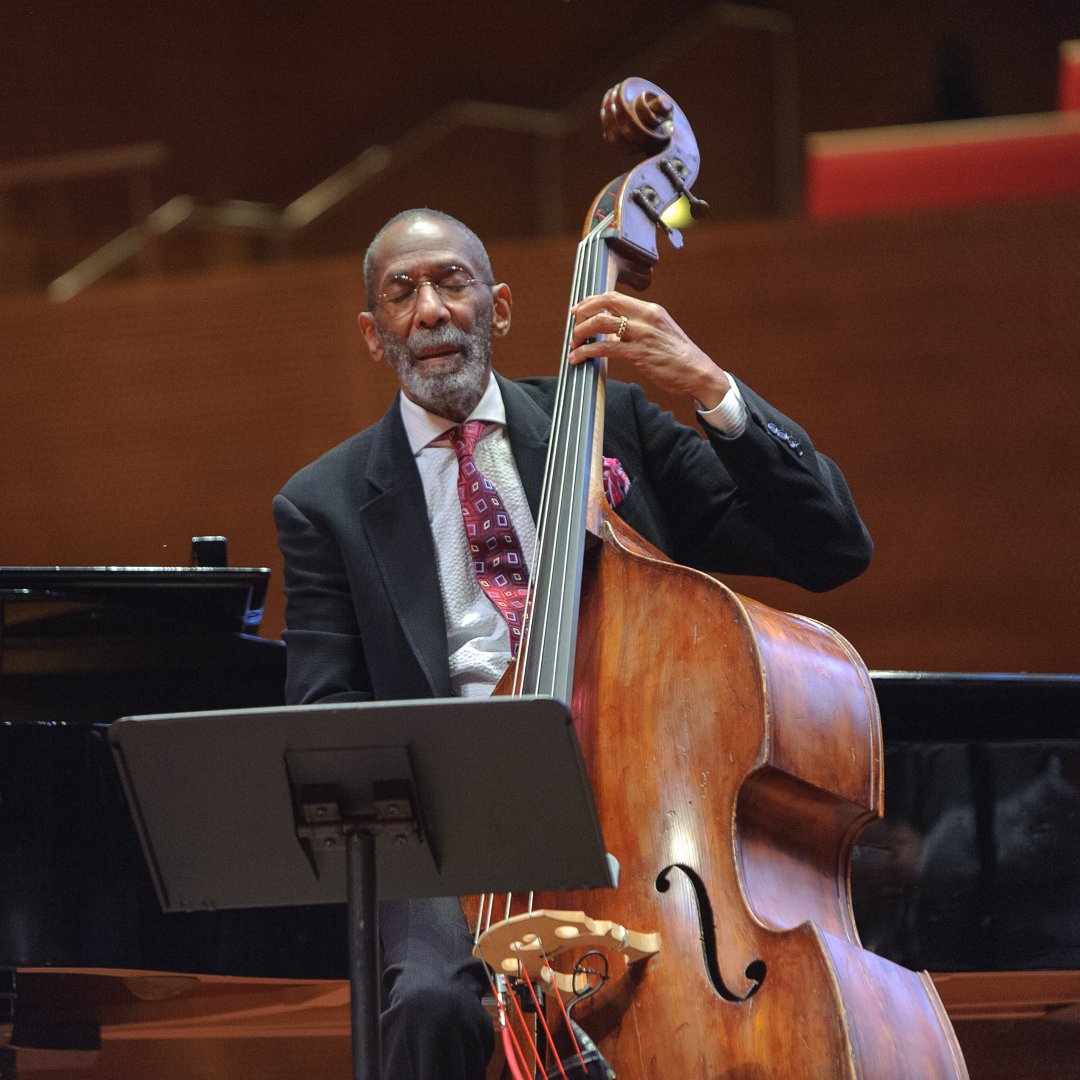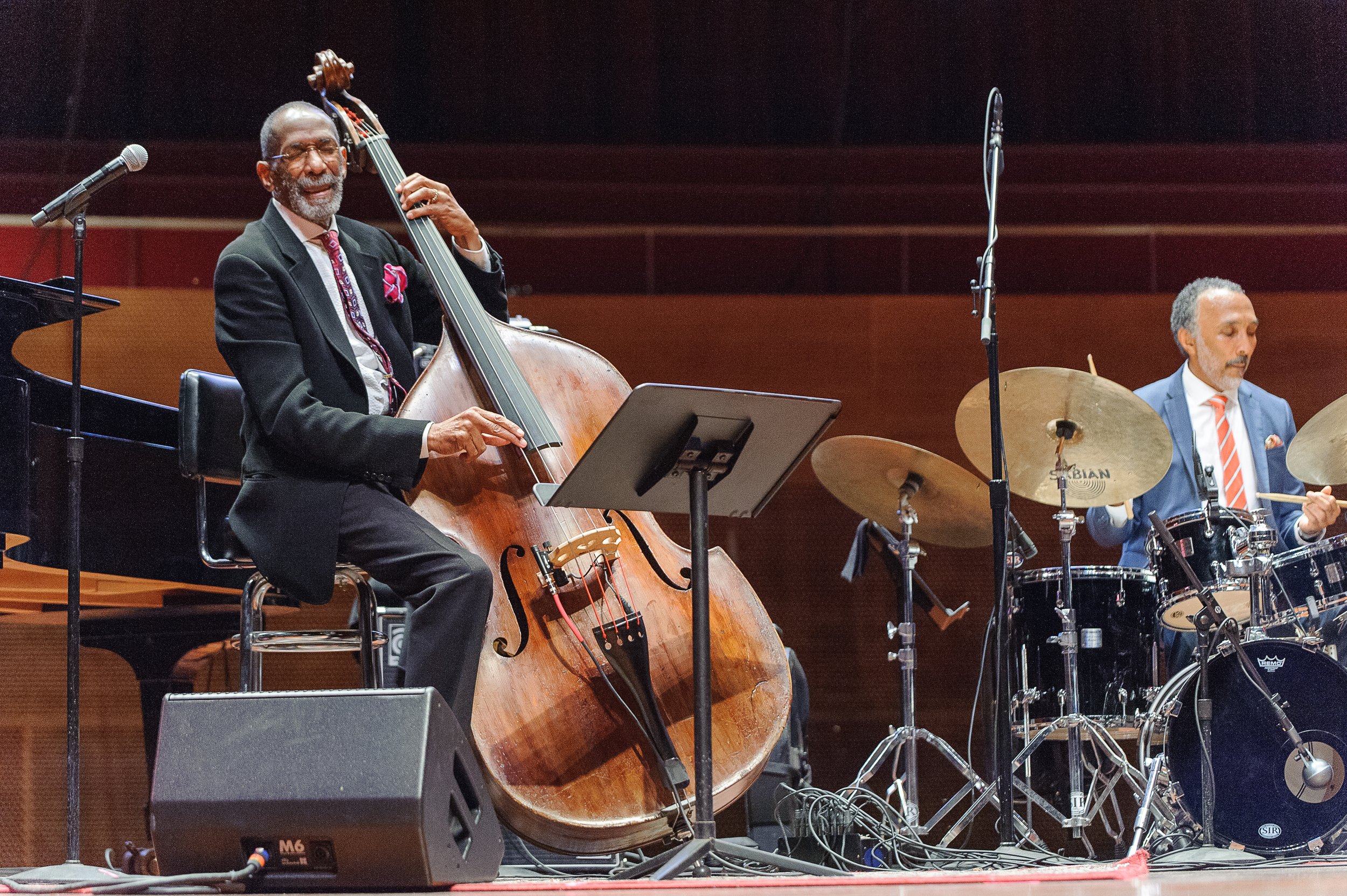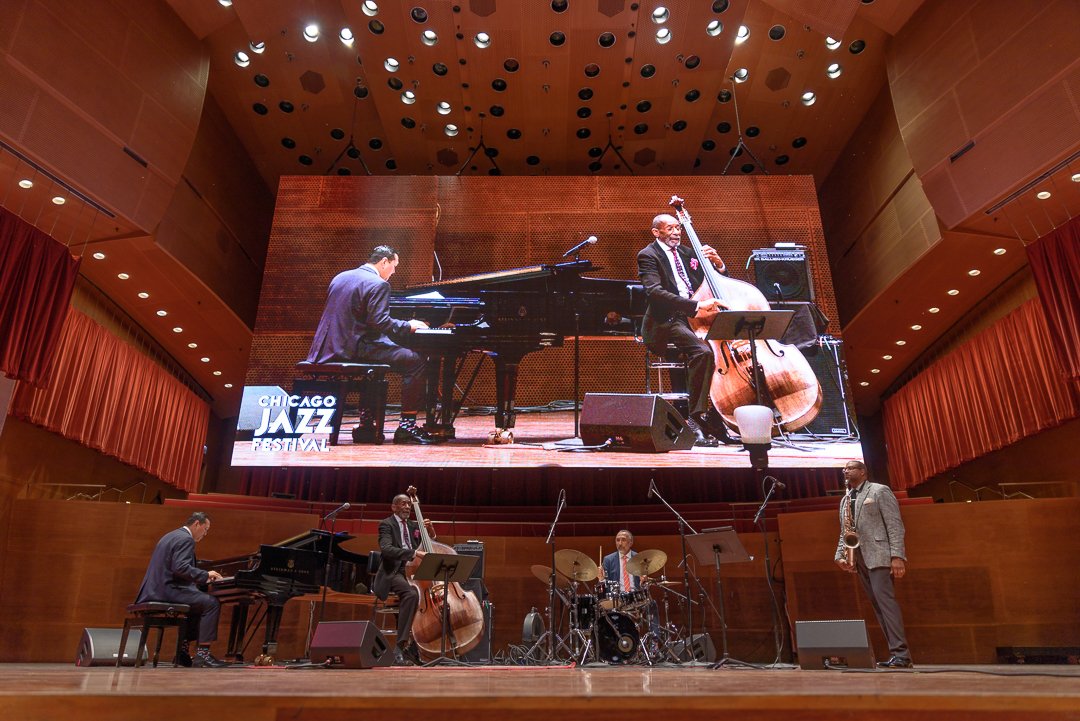Interview with jazz legend Ron Carter
Wanjiku Kairu: Welcome, Ron Carter. So excited to have you performing at the Jazz Festival. Of course, you'll be performing at the Jay Pritzker Pavilion 8:00 P.M. on Thursday. We're so happy to have you. How are you today?
Ron Carter: I'm looking forward to being in Chicago for the first time in about 25 years
Wanjiku Kairu: Oh my goodness. A lot has changed since you've been here. But some things are still the same, so we'll be so excited to have you.
Ron Carter: Thank you.
Wanjiku Kairu: One of the questions that we have for you... And you've had such an amazing career. It's been such a long career... what has been your continued inspiration?
Ron Carter: Well, my desire to play better every night and to make sure I leave the job feeling I've done the best I could to make those people play with me better because I'm there.
Wanjiku Kairu: Nice. Nice. I'm glad you've been able to have that experience. Throughout your performances I'm sure there have been a lot of musicians that you've enjoyed playing with, but off the top of your head, do you remember any that you just loved so much performing with?
Ron Carter: If I answer that, that means all the others weren't so important, and that can't be true. So I always kind of slide by that and say they were all my teachers and I miss them all whether they're here or not.
Wanjiku Kairu: Excellent. Well, then I'll rephrase that. Were there any that you had a more unique experience with?
Ron Carter: See answer number one.
Wanjiku Kairu: Okay, okay. I get it. I get it. Throughout all of that, and not to play favorites, but as far as someone who has inspired you or maybe inspired you at the start of your career, who has been a musician that you have looked up to in order to create your own sound?
Ron Carter: As a freelancer, everyone who you play with at beginning of your career influenced your thoughts to some degree or other just because you are looking for a different path than either one you're stumbling along or one that you heard somewhere else. Having said that, I was influenced by J.J Johnson, who plays trombone, of course. He brought the trombone instrument and that concept from the Stone Age up to the bebop era. Guys weren't playing like that at all. And Cecil Payne, who was a baritone player during my first days with Randy Weston Quartet, he was playing the same horn as the five other major baritone saxophone players were. He's able to sound like Cecil Payne wherever he went. I love that kind of personal sound on the common instrument, baritone saxophone. Those are two musicians who encouraged me unknowingly that if I had a track I believed in, follow it through.
Wanjiku Kairu: Yeah. Nice, nice. And of the musicians that you have played with and the styles that you have played, what are some styles of jazz that have really stood out to you?
Ron Carter: All of them because they have players who believe in them, and I like to be a part of whatever direction thoughts are of those particular bands and band leaders who kind of ask that question in a different fashion is usually, "Where do I think jazz is going?" And I always tell them, "I don't know, but find the address and I'll meet you there.”
Wanjiku Kairu: Nice. So you've had such an amazing career. You hold the Guinness World Record for the most recorded jazz... You're the most recorded jazz bassist in history, and I know it might be difficult for you to answer this question, but of all of those recordings, maybe there are a couple that stood out to you the most, are there any that stood out to you that maybe stand at the test of time or some that you have held closer to your heart?
Ron Carter: They all did, but I'll only tell you that answer personally.
Wanjiku Kairu: Okay, that makes sense. That makes sense. Then I guess as far as locations of where you've been recording... I know you haven't been in Chicago in a while, but are there any specific locations that you've preferred to be a part of?
Ron Carter: Well, Rudy Van Gelder was the inventor of a great jazz sound on record, and I was probably the most recorded bass player out at Rudy Van Gelder's because he was a guy who made the space and jazz music have another horrible format because of how he recorded instruments. Having said that, I've been in a lot of different studios, but none matched to Rudy Van Gelder's studio and Rudy.
Wanjiku Kairu: Nice. Nice. Do you recall how many times that you've recorded with Rudy?
Ron Carter: Well, at least 165.
Wanjiku Kairu: Oh, at least 165 times. That is a lot, but I guess for someone who holds the world record, it might not be that much in respect. So you've been playing jazz for many, many decades, and I have to ask, what has been a decade that has stood out to you as some of the most original for jazz or one of your favorites that you've enjoyed playing jazz during?
Ron Carter: Well, I have never really considered me a pure jazz player. I've made records with different genres, and they've always offered me another way to see how the bass can function not my home environment, so to speak. And I took those jobs, one, because they asked me to do it. I was always surprised that they'd given all the bass players who were in New York and who have access to getting to New York, I thought they thought that I was the one who could best meet their, not just their challenge of the music, but I could bring something that would make the music do another level of reaching something that they had in mind. Haven't given you that really long of answer-
Wanjiku Kairu: Yes. You have no answer for that one. So all the decades have been good for playing music. Okay, that's fine. That's fine. So we really want to be able to support you and see what more that we can see you and hear you in. Are there any projects that you're currently working on that you would like to share with us today?
Ron Carter: I'm not at liberty to share two or three of them, but one thing I'm working on is recording some church music, some gospel songs, working with a choir. So I'm trying to put that together in personnel and who's going to be the conductor. I have a library worked out. I'm working on some arrangements. I said my next goal is, can I put this package together and put it down feeling, "This is how I feel about church music”?
Wanjiku Kairu: Nice. We'll be excited to hear that. We'll be very excited to hear that.
Ron Carter: Good.
Wanjiku Kairu: Yeah. So as far as the performance that you're going to have on Thursday, what are your inspirations towards the piece that you'll be playing?
Ron Carter: Well, I will plan the program... I have two days to plan the program. We get to Chicago, we'll sit down, the band and I, and I will pass out what I think is a really good set to tell some nice story that the audience will fall into, as it were. Jimmy Greene, Payton Crossley, and Donald Vega will be helping with this story. And I let them know this in advance if I can because I want them to try to see what my story is for the moment, and the best surprise is no surprise.
Wanjiku Kairu: Are there any storylines that you're leaning more toward?
Ron Carter: Well, everything is changing so fast. I'm trying to settle into something that's meaningful. It's kind of important as to how I view the world through my windows, and we'll see if I can convince some people out there in the audience to kind of follow the flow of my thoughts as I walk down the street.
Wanjiku Kairu: Nice. Well, we'll be excited to share in that with you and excited to cheer and sway along to your music. Thank you so much. Yeah! We'll be bopping and weaving and everything.
Ron Carter: Absolutely. Yes. That too.
Wanjiku Kairu: Yeah. Yeah. Well, very nice. Thank you so much for meeting with us. Of course, we'll be seeing you at the Jay Pritzker Pavilion at 8:00 P.M. on Thursday, August 31st. Thank you so much for meeting with us today, Ron.
Ron Carter: And we'll start on time. You'll be on time.
Wanjiku Kairu: Okay. We'll all come out with our cell phones and our lighters and everything.
Ron Carter: Well, just sit down and enjoy a nice story coming at you.
Wanjiku Kairu: Oh, thank you. Thank you. That'll be great.



